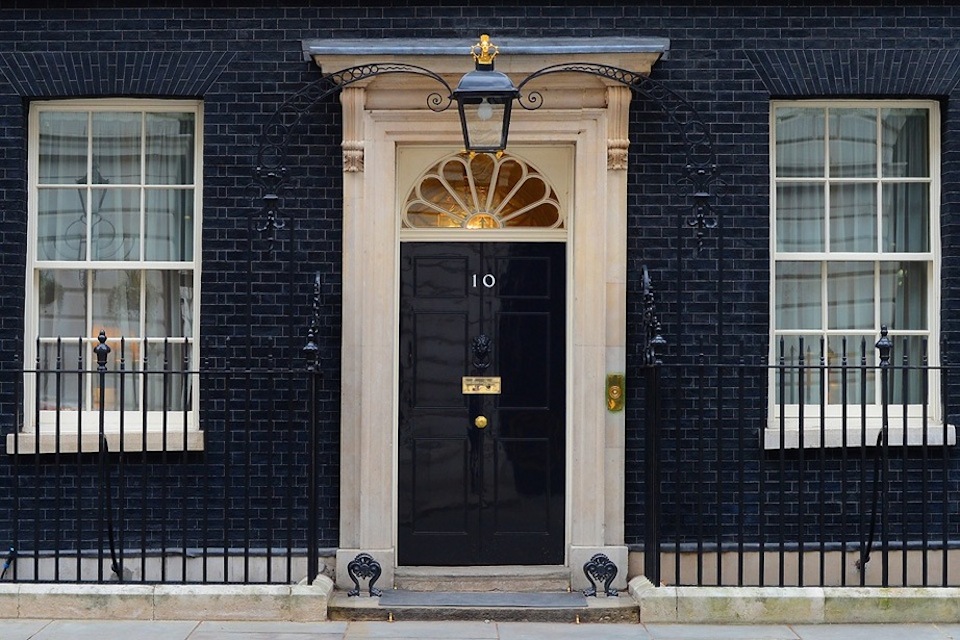PM statement following talks with Japanese Prime Minister Abe: 28 April 2017
Prime Minister Theresa May gave a statement after her meeting with the Prime Minister of Japan Shinzō Abe at Chequers.

The United Kingdom’s relationship with Japan is vital to our prosperity and security.
And the fact that Prime Minister Abe is the first world leader I have hosted at Chequers underlines that fact. And it gives me great pleasure to welcome him here today.
With both of our nations facing a range of global challenges, we have discussed ways in which we can deepen our strong and vital partnership.
Today we have reaffirmed our commitment to work together to support the rules-based international system and the promotion of free trade and democratic values.
Throughout our talks, I have been clear that this is not the time for the UK to step back from the world but rather to step up, and continue to stand tall alongside our friends and allies.
Brexit/trade
During our discussions, I updated Prime Minister Abe on our preparations for Brexit and reiterated our determination to make sure the UK remains the best place in Europe to run and grow a business, whether it’s one operating at home or abroad.
And we are building from a position of strength.
Japanese companies have already invested a total of more than £40 billion in the UK. The UK is the second most popular destination for Japanese investment after the US.
And around 1,000 Japanese companies including Honda, Hitachi and Mitsubishi employ 140,000 people in the UK.
Since the vote for Brexit, Japanese businesses have continued to show confidence in the UK, with Japan’s Softbank making a record £24 billion purchase of ARM Holdings and committing to double the number of jobs.
Nissan announcing that they will build the new Qashqai model at their plant in Sunderland, and Toyota committing to a £240 million investment at its plant in Derby.
It is clear that our strong economy, high level of skills, and low levels of taxation continue to make Britain an attractive destination for investment.
In our talks today, I have reaffirmed the UK’s desire for an enduring deep and special partnership with the EU, including a bold and ambitious free trade agreement which gives British companies the maximum freedom to trade with and operate within European markets – and allows European businesses to do the same in Britain.
G7
We remain a global, outward-facing Britain, and the UK and Japan co-operate closely on the international stage, including in the G7.
This is a vital grouping, through which countries with shared views on free trade, democratic values and the importance of the rules-based international system can work to create societies and economies that work for everyone.
And I would like to congratulate Prime Minister Abe on Japan’s recent successful presidency, which saw significant progress.
This May the G7 will meet again, in Italy, and today Prime Minister Abe and I discussed our priorities for the summit.
We will once again push to lower barriers to trade and create economies that share the benefits of globalisation across our 2 countries.
And on migration we agreed that we need an international approach that is in the interests of all those involved, and that protects men, women and children from trafficking, sexual violence and labour exploitation.
Global issues
In an uncertain world, unity among friends and allies is more vital than ever. And Japan is our closest Asian security partner.
Last year RAF Typhoons took part in exercises in Japan, the first time that a country other than the US had done so, while Japanese troops exercised in the UK for the first time ever.
But our strong and well-equipped military is just one of the tools at our disposal.
In our discussions today we agreed that we should continue to stand firm in the face of destabilising Russian activity, whether in Ukraine or Syria.
And that one of the ways to do this is through economic pressure including the use of sanctions.
We are clear that these sanctions must remain in place until the full implementation of the Minsk Agreement.
We have also highlighted our opposition to any actions on the South and East China Seas likely to increase tension. Stability in this region is of global concern and we encourage all parties to resolve their disputes peacefully and in accordance with international law.
As we meet today, North Korea continues to take provocative action in the Asia-Pacific region. And the United Nations Security Council is meeting to discuss this very issue.
In the face of this belligerence we stand steadfast in our condemnation of such destabilising activity.
Their nuclear and missile tests are a violation of United Nations Security Council resolutions and international obligations, and a risk to global peace and stability.
Prime Minister Abe and I have agreed that we will continue to work with our international partners to maintain pressure on North Korea and counter the security threat posed by its illegal pursuit of nuclear weapons and work towards a peaceful solution.
Conclusion
On all of these issues, Prime Minister Abe and I have agreed that the UK and Japan should work closely together for the benefit of both our great nations, standing shoulder-to-shoulder in the face of our shared challenges, promoting our shared values, and looking positively to the shared opportunities that the future will bring.